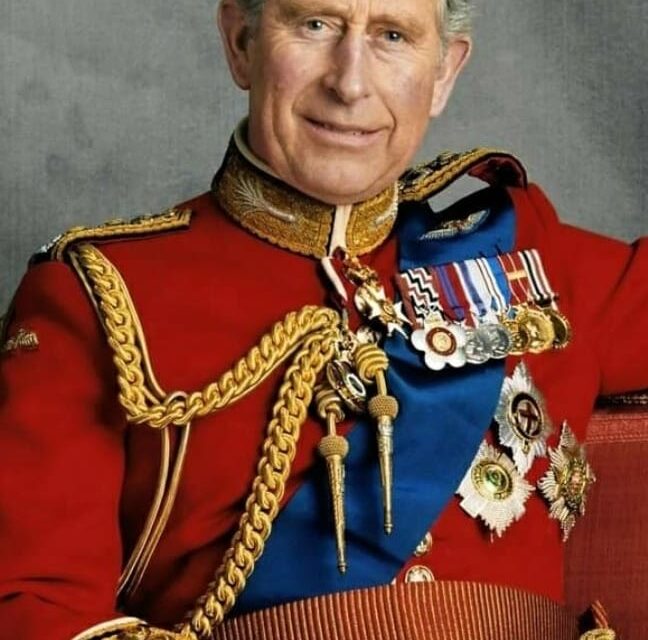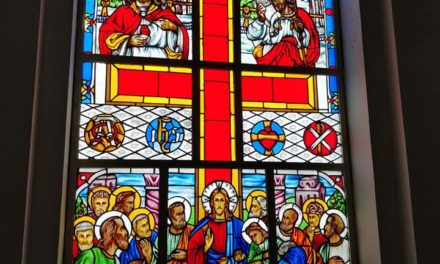Faced with the growing secularism and decline of Christianity, the personal faith of Queen Elizabeth II re-echoes the Christian values and the unique role of the British monarch as head of the established Church. The function of the monarchy since the reformation keeps Christianity in the public sphere, ‘even if more honoured in the breach than the observance.’ [1] In our rebellion against the divine monarchy, the decline in biblical literacy and Christian formation calls us to cry to “God to save the king” to save us all, for all have sinned (Rom 3:23). As the monarch swears a coronation oath on Saturday, May 6, 2023, to uphold the reformed faith, our cry to God to save the king is to save us all, the home, churches, and nations from ‘heresy that has been allowed to flourish in the established churches.’ We cry to God to prepare the king for this lifelong task and save him to promote royal assent compatible with Christian moral convictions, a call to service central to the understanding of the monarchy. Only God can save the king as a servant king following his mother’s footsteps to save us all with ‘a desire and a commitment to serve, following the ways of Christ in joy-filled servant-heartedness.’ [2] God must save the king as the Head of the Commonwealth, ‘family of nations,’ a group of 56 developing and developed nation for practical cooperation.
The Jacobite rebellion and threat faced by George II from the Stuart pretender Bonnie Prince Charlie resonates with secularise invasion and threat confronting the Church and the nation today. God must save the king to save us from the repeat of what happened in 1745,[3] if they are not happening already. King Charles III’s Coronation summons us to cry to “God to save the king” to save us all from the new Public Order Bill that could signal the death of Christian Britain. God must save the king to save all of us from the lobbyists seeking a secularised Crown. God must save the king as he swears, ‘laying his right hand on the Bible, to “use the utmost of his power” to maintain “the Laws of God and the true profession of the Gospel.” [4]
The recent census results show the prevailing narrative, decline, and hostility towards Christianity in Great Britain. A funeral and a coronation tell us much about Britain as a Christian nation, just as mourning Queen Elizabeth II reveals that the census was inaccurate. Following the death of Queen Elizabeth II at Balmoral on Thursday, September 8, 2022, the momentous national mourning event was ‘Christianity in general and the Bible in particular.’ At Buckingham Palace, the crowds sang “God Save the Queen” for the late sovereign and “God Save the King” for her eldest Son and successor, the former Prince of Wales, now known as King Charles III.’ It is important to note that the “God Save the King” version was sung until 1952, when Queen Elizabeth II’s father, George VI, died. Then, she became queen. [5] The echoes of monarch history points to the sound of a central gospel message, the confession by Britain’s political order that Christ is Lord of lords.
As the longest heir apparent in British history, King Charles’ born in 1948, went from Balmoral to boarding school till 1958. His investiture as the Prince of Wales in 1969 was a new chapter of service to the nation. The British longest heir would be remembered for walking Meghan up the aisle in 2018 in holy marriage to Prince Harry on May 19, 2018.
‘God Save the King’ remains a mission, redeeming, and patriotic song that was ‘first publicly performed in London in 1745, which came to be known as the National Anthem at the beginning of the nineteenth century.’ But, just as the specter of Bonnie Prince Charlie loomed, threatening to reclaim the thrones of England, Scotland, and Ireland for the Stuarts, the specter of Christianity in Britain is looming and declining today in an age of nominal Christianity.
IN September 1945, the song ‘God Save the King’ was first adopted as the UK and Commonwealth’s national anthem during the reign of George III. The throne can always be occupied and secured; hence, when Queen Elizabeth died, Prince Charles technically became king. Consequently, the national anthem’s words changed ‘even while preparations were made for a new coronation. The Christian lyric for the Coronation is God-centered and dependent. The lowdown of the coronation regalia by Catherine Pepinster, the author of Defenders of the Faith – the British Monarch, Religion and the Coronation, is very helpful to understand the Christianity of the Coronation. The lowdown, which is Christ-centred, symbolizes divine authority.
The first coronation regalia is the weighty St Edward’s Crown, only ever used during the monarch’s Coronation. At the climax of the coronation ceremony, the Crown, as the monarchy’s authority is placed on the king’s head ‘conveys a much more important theme of the whole Coronation – the relationship of the sovereign to God and that it is God who has dominion over the world. This is also signified by the cross, which is the apex of the Crown, and this sits atop the ‘monde’ – or Orb – which represents the world, also below God … St Edward’s Crown is a reminder that everyone, including the newly crowned monarch, is there to serve God – the God who gave his only Son to redeem the world.’ [6]
As part of the coronation regalia, Ampulla is a glass vessel with two handles used for sacred purposes. Ampulla, the same term for the gold container used during the Coronation to hold anointing oil for the monarch, remains a form of blessing after making the oaths to govern, protect the Church of England and be just and merciful before being crowned. Pepinster notes, ‘Anointing is used in Christianity for baptism, confirmation, and ordination, and links the monarch’s role to that of a priest – serving God, pointing towards the Lord, committed for life. Like much of the coronation regalia, this gold ampulla, made in the shape of an eagle, was made for Charles II in 1661.’ The anointing oil for King Charles’ Coronation was made in Jerusalem ‘using oil pressed from olives growing on the Mount of Olives, where the king’s paternal grandmother, Princess Alice of Greece, is buried. It is perfumed with sesame, rose, jasmine, cinnamon, neroli, benzoin, amber, and orange blossom. The combination of fragrance and richness from the oil symbolizes the gifts of the Holy Spirit combined with Christian virtue.’
The Orb, a gold sphere placed at the altar to be given to the king by his right hand by the Archbishop of Canterbury. Most Rev Justin Welby with this statement: “Receive this orb set under the cross and remember that the whole world is subject to the power and empire of Christ, our Redeemer.” The rod and the scepter are the final items to be delivered to the monarch before the crowning. While the rod with the dove – denoting mercy – is placed in the left hand, the scepter with the cross is placed in the right (Ps 23). In 1953, the scepter was handed to Elizabeth II by the Archbishop of Canterbury, saying, “Receive the Royal Sceptre, the ensign of kingly power and justice.” The huge Last Supper altar dish forms the centerpiece on the High Altar at Westminster Abbey and points to a Eucharist service at the heart of the Coronation. The altar dish ‘shows Jesus at the Last Supper, with John the evangelist leaning on his shoulder and the hooded figure of his betrayer, Judas, in the foreground.’
The Coronation of King Charles III allows us to cry to God to save the king to save us all with a true revival in Great Britain. In this moment of great transition and significance, we need to cry to God to save the king to save us all as the Bible retains its power to redeem and speak to the heart of individuals in our churches and nations. So let us prayerfully sing together:
God save our gracious king!
Long live our noble king!
God save the King!
Send him victorious,
Happy and glorious,
Long to reign over us:
God save the King!
O Lord our God arise,
Scatter his enemies,
And make them fall:
Confound their politics,
Frustrate their knavish tricks,
On Thee our hopes we fix:
God save us all.
Thy choicest gifts in store,
On him be pleased to pour;
Long may he reign:
May he defend our laws,
And ever give us cause,
To sing with heart and voice,
[1] https://www.premierchristianity.com/royal-family/god-save-the-king/15365.article
[2] The Church of England, Daily Prayers for the Coronation of King Charles III, p. 17
[3] https://www.classical-music.com/features/works/where-did-god-save-the-king-come-from-a-guide-to-the-history-of-our-national-anthem/
[4] https://www.premierchristianity.com/opinion/britain-has-become-the-defender-of-all-faiths-but-one/15387.article
[5] https://www.columbian.com/news/2022/sep/15/british-anthem-now-god-save-the-king/#:~:text=Originally%20titled%20%E2%80%9CGod%20Save%20the,the%20first%20verse%20is%20sung.
[6] https://www.premierchristianity.com/features/from-crown-to-orbeverything-you-need-to-know-about-the-coronations-5-sacred-objects/15374.article











Recent Comments